Principal Investigators
Principal Investigators
PVARF uses the term Principal Investigator to designate the individual who has overall authority and responsibility for conducting a research or education project. The principal investigator (PI) for each project/activity must hold a VA appointment and also must be the same person who is named in the approval granted the project by the applicable committee or Education Committee. The PI for each project/activity is responsible for supervising all personnel for their activity.
Upon request and approval from the appropriate PI, the PVARF will pay personnel from the appropriate research or education account fund.
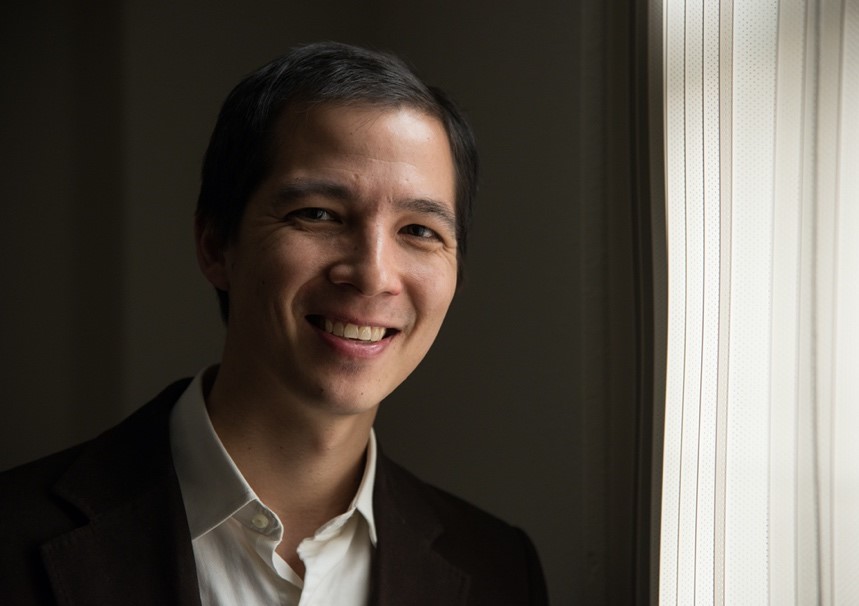
Alan Teo, MD, MS
Psychiatry

Alan Teo
Center to Improve Veteran Involvement in Care (CIVIC)
Core Investigator
I am a psychiatrist and health services researcher, having completed my education and training at Stanford University, University of California San Francisco, and University of Michigan. Since 2013, I have been a Core Investigator in the VA HSR&D Center to Improve Veteran Involvement in Care at the VA Portland Health Care System, and I am an Associate Professor at Oregon Health & Science University (OHSU) in the Department of Psychiatry.
My works intersects the fields of health services, behavioral science, and social and cultural psychiatry. The overarching theme of my research is how our social connections shape and influence mental health outcomes. In this work, I attempt to understand ways to mitigate social isolation and loneliness, and also harness the benefits of social support. I have a particular focus on depression and suicide prevention and a strong interest in developing, testing, and evaluating interventions in real-world settings.

Alice Avolio, MS, RN
Alice Avolio
Nursing
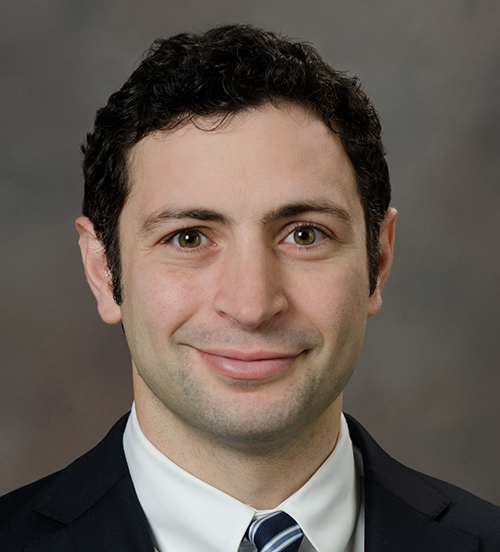
Amir Azarbal, MD, M.C.R.
Vascular Surgery

Amir Azarbal
Surgery
Dr. Amir Azarbal is a vascular surgeon and associate professor of surgery in the Division of Vascular Surgery in the OHSU School of Medicine.
He sees patients only at the Portland VA Medical Center, where is section chief in vascular surgery.
Dr. Azarbal earned his M.D. degree from Columbia University. He completed his residency in general surgery and a fellowship in vascular surgery at OHSU.

Jennifer L. Barton, MD, MCR
Rheumatology

Jennifer L. Barton
Internal Medicine
Jennifer L. Barton, MD, MCR, is the Rheumatology Section Chief at the VA Portland Health Care System and Associate Professor of Medicine at Oregon Health & Science University. Her research focuses on patient-clinician communication and the rheumatic diseases. She is co-lead of the VISN 20 VA Rheumatology ECHO which began in 2019.
Dr. Barton received an NIH K23 award to study patient-clinician concordance around goals for treatment of rheumatoid arthritis. She completed fellowship at University of California, San Francisco, and was an assistant professor at UCSF, where she received a career development award from the American College of Rheumatology. She has conducted research on disparities in utilization and outcomes in rheumatoid arthritis (RA), and led the development of a low literacy medication summary guide and decision aid tool for vulnerable populations with RA. With funding from the Gerlinger Endowment, Dr. Barton has updated the RA medication summary guide and decision aid which will be further evaluated in a VA population as part of her VA HSRD Merit Award (IIR 20-162), “Implementation of shared decision making in rheumatoid arthritis: A stepped wedge, cluster-randomized trial.

Naomi Bramhall, PhD
Audiology

Naomi Bramhall
Audiology

David Calverley, MD
David Calverley
Hematology

Kathleen F. Carlson, MS, PhD

Kathleen F. Carlson
Center to Improve Veteran Involvement in Care (CIVIC) and National Center for Rehabilitative Auditory Research (NCRAR), VA Portland Health Care System.
Core Investigator
Dr. Carlson’s research examines the spectrum of injury prevention and control, from the epidemiology of intentional and unintentional injuries to the rehabilitation of military Veterans with combat injuries. Her current research grants examine firearm-related injuries, opioid and other medication-related injuries, and short- and long-term functional outcomes of Veterans’ traumatic brain injury. Dr. Carlson leads the OHSU-PSU Gun Violence as a Public Health Issue workgroup, an effort initiated in 2016 in response to the Pulse Nightclub mass shooting in Florida that summer. Her leadership roles with national injury prevention organizations include serving on the Board of Directors for the Society for Advancement of Violence and Injury Research and with the Injury Control and Emergency Health Services section of the American Public Health Association. Dr. Carlson directs the VA health services research post-doctoral fellowship program at the Portland VA and teaches/advises MPH and PhD students in epidemiology at the OHSU-PSU School of Public Health.
Proud Oregonian who grew up in the small town of Veneta (home of the Oregon Country Fair!)

Michelle Cameron, M.D., P.T., M.C.R.
MS

Michelle Cameron
Neurology
Michelle H. Cameron, M.D., P.T., M.C.R., a neurologist and physical therapist, is an associate professor in the Department of Neurology at Oregon Health & Science University and at the VA Portland Health Care System.
Dr. Cameron’s research focuses on imbalance and falls in people with multiple sclerosis. Dr. Cameron also provides clinical neurology care to people with MS and related disorders and participates in various other clinical trials of MS treatments. Dr. Cameron teaches continuing education courses on balance and falls and courses on the use of physical agents in rehabilitation to providers around the world.

Sunwen Chou, MD
Infectious Disease

Sunwen Chou
Internal Medicine
Dr. Chou’s special focus is Cytomegalovirus Antiviral Therapy.
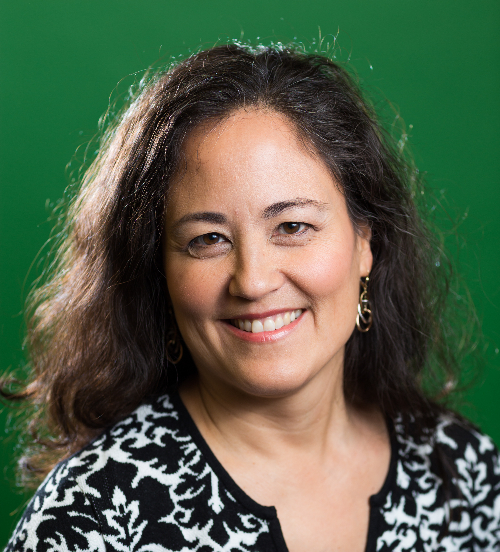
Kathryn Chung, MD
Movement Disorders

Kathryn Chung
Neurology
Dr. Chung earned her medical degree from the University of Alberta. She is board certified in internal medicine (1998) and neurology (2003). She received her training in movement disorders from OHSU.
She joined the OHSU movement disorders faculty in 2004. She is currently an associate professor of neurology with the OHSU Parkinson Center and the Parkinson’s Disease Research, Education, and Clinical Center (PADRECC) at the Portland VAMC.
Her research interests are focused primarily on Parkinson’s disease. Her special interests are the understanding and treatment of dyskinesia, gait and balance abnormailities, neuroprotective strategies, and the study of biomarkers in Parkinson’s disease.
Dr. Chung is an expert clinician for all movement disorders and Tourettes syndrome.

Daniel Clayburgh, MD, PhD, F.A.C.S.
Head and Neck Surgery

Daniel Clayburgh
Otolaryngology
Dr. Daniel Clayburgh grew up in North Dakota and attended a Williams College in Massachusetts, where he received a Bachelor’s degree in Chemistry. He then attended University of Chicago, where he received his medical degree and also completed a Ph.D. in the Department of Pathology. Following medical school he completed his residency in Otolaryngology/Head and Neck Surgery at Oregon Health and Science University, followed by a fellowship in Advanced Head and Neck Surgical Oncology at the University of Pittsburgh. He is board certified in Otolaryngology/Head and Neck Surgery.
Dr. Clayburgh works at both OHSU and the Portland VA Medical Center and specializes in the treatment of head and neck cancer, including squamous cell carcinoma, skin cancer, thyroid and parathyroid disease, and salivary gland malignancy. He has advanced training in minimally invasive approaches to the head and neck, including transoral robotic surgery. His research interests include cancer stem cells, the development of new therapies and surgical technology for head and neck cancer, and improvements in perioperative management of head and neck cancer patients.

David Cohen, MD
Nephrology
David Cohen
Internal Medicine
Dr. Cohen’s research interests center around the genetics and physiology of osmoregulation (water balance). His group conducts studies at the cellular level, in animal models, and in human cohorts. Dr. Cohen directs the Genetics of Water Balance Consortium, a global network of major cohorts investigating genetic associations in water balance-relevant phenotypes. He also serves as local site investigator for the Portland site of the VA’s Million Veteran Program – a national voluntary research program to study how genes affect Veterans’ health. Local recruitment for this effort recently topped 11,000 enrolled Veterans.

J. Stone Doggett, MD
Infectious Diseases

Stone Doggett
Internal Medicine
Dr. Doggett specializes in infectious diseases. He enjoys the complexity of treating difficult infections, the challenge of diagnosing rare infectious diseases, and, above all, seeing his patients regain their health. When he is not taking care of patients in the hospital or clinic, he researches new drugs to treat malaria and toxoplasmosis.
Dr. Doggett enjoys running, swimming and riding his bicycle to work and around the Pacific Northwest. He has two boys that keep him busy at home and inspire his intellectual curiosity.

Samuel Edwards, MD, MPH

Samuel Edwards
Internal Medicine
Samuel Edwards is a primary care physician, general internist, and health services researcher at the VA Portland Health Care System and an Assistant Professor of Medicine at Oregon Health & Science University. Dr. Edwards’s research focuses on the role and function of primary care, with a focus on the care of high-need individuals through Home-Based Primary Care (HBPC). His Career Development Award uses mixed methods to explore what features of HBPC drive its success in reducing hospitalizations for ambulatory care sensitive conditions, and will use these insights to develop an intervention to improve care in HBPC. He is interested in innovative research methods, and complexity science informed approaches to system change.
Dr. Edwards received his medical degree from the Cleveland Clinic Lerner College of Medicine at Case Western Reserve University, completed residency in internal medicine at Beth Israel Deaconess Medical Center, fellowship in General Medicine and Primary Care at Harvard Medical School and received a master of public health from the Harvard T.H. Chan School of Public Health.
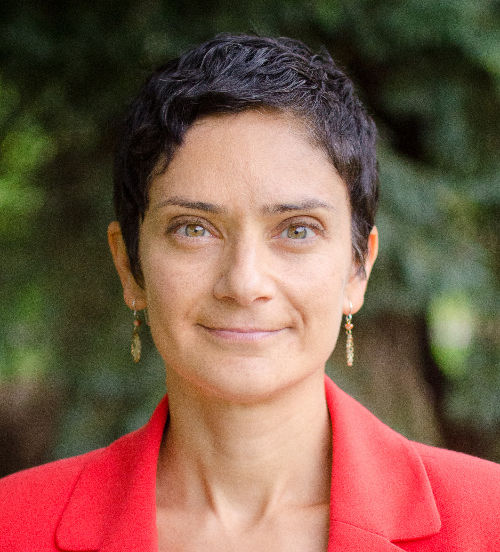
Deniz Erten-Lyons, MD, FAAN
Geriatric Neurology

Deniz Erten-Lyons
Neurology
Deniz Erten-Lyons, M.D., FAAN, is an Associate Professor in the Department of Neurology at Oregon Health & Science University, School of Medicine. She is a geriatric neurologist and researcher in the areas of brain aging and neurodegenerative dementias. She also is a staff neurologist at the Portland VA Health Care System, where she leads the Geriatric Neurology Fellowship Program, and serves as Co-Director of the Dementia Clinic and the ALS Center.
Dr. Erten-Lyons’s research interest is in the pathology, biomarkers and genetics of neurodegenerative dementias. She has an interest in the use of telemedicine to improve access and quality of care in neurodegenerative disease. Dr. Erten-Lyons has received research support from the US Department of Defense, National Institute on Aging, the Alzheimer’s Association, the Medical Research Foundation of Oregon, and Oregon Office of Rural Health.
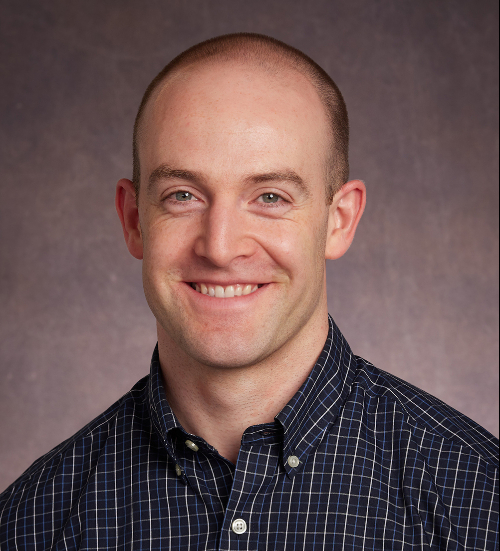
Jonathan Elliott, PhD

Jonathan Elliott
Research & Development; Sleep Disorders Clinic
Research Physiologist

Graeme Forrest, MD
Infectious Disease

Graeme Forrest
Internal Medicine
Dr. Forrest is director of the antimicrobial stewardship program at the VA and OHSU. He currently directs the VA OPAT program and provides VA outpatient services.
He is also currently Chair of the IRB at the VA Portland healthcare system. He also is an advisor for the Clinical Laboratory and Standards Institute (CLSI) breakpoint working group.
He has over 80 publications, 7 chapters and over 100 accepted abstracts and is an editor on several journals, including Journal of Clinical Microbiology.
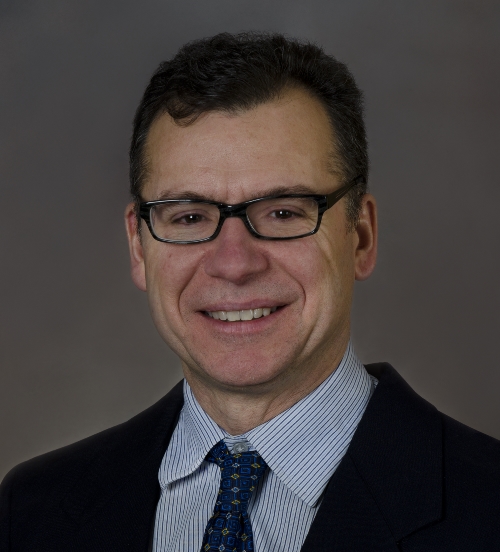
Mark Garzotto, MD
Urology/Oncology

Mark Garzotto
Urology
Dr. Garzotto has a long standing interest in trying to refine the diagnostic approaches to the detection of prostate cancer including incorporation of MRI and novel statistical methods such as machine learning. His research group identified the Viet Nam war-era defoliant, Agent Orange as a risk factor for aggressive prostate cancer. He is considered an expert in the design of novel treatment regimens for locally advanced prostate cancer including combination therapy such as chemoradiation and immuno-hormonal regimens. He is the Chief of the Urology at the Portland VA Medical Center where he also serves as the Lead Investigator for the VA NAVIGATE Program that conducts NCI-sponsored trials for multiple cancer types. Understanding the molecular drivers of cancer is a prime interest of his, as he feels this knowledge is essential to the pursuit of improved outcomes for patients. He has a strong interest in teaching as he feels the future of medicine is dependent on the continued growth in knowledge. He has been awarded the Department Faculty Teacher of the Year Award several times.

Sara Golden, PhD

Sara Golden
Health Services Research & Development/Center to Improve Veteran Involvement in Care
Qualitative Methodologist
I have a strong background in qualitative methods and mixed-methods studies. The majority of my previous work has involved exploring patient-clinician communication amongst patients with, and at risk, of lung cancer.
Outside of work I enjoy spending time with my family, exploring foreign countries by getting lost on purpose, and eating anything on the menu that is unfamiliar.
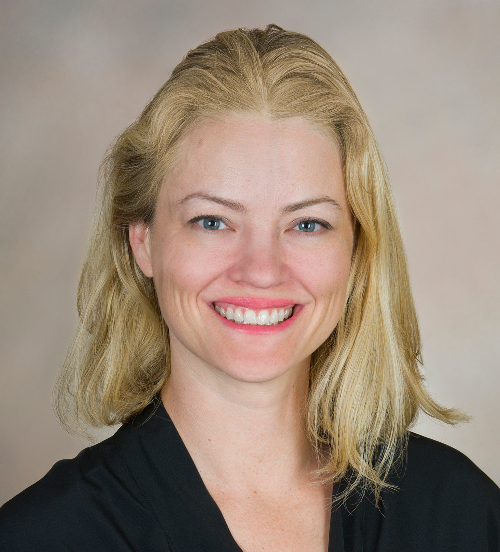
Julie Graff
Oncology

Julie Graff
Internal Medicine
Dr. Graff was born and raised in Phoenix, Arizona. She attended University of Arizona and graduated with a BS in Applied Mathematics with honors in 1998. She then went to medical school at George Washington University where she received her MD with distinction in 2003. She moved to Portland, OR, and completed residency and fellowship at the Oregon Health & Science University in 2009. Since that time, she has been on the faculty at the Knight Cancer Institute OHSU and on the staff at VA Portland Health Care System, where she has been the chief of hematology/oncology since 2018.
Dr. Graff focuses on helping patients with cancer live well. She sees patients with genitourinary cancers, such as prostate, kidney, bladder and testicular cancers, but her research is on prostate cancer. She has designed and implemented many clinical trials that have resulted in some dramatic results. She became internationally recognized for her work in immunotherapy in prostate cancer (link). This work has spun off into multiple trials. In 2018, she earned a prestigious $1M Movember Challenge Award from the Prostate Cancer Foundation to study the effect of manipulation of the gut microbiota on responses to immunotherapy in Veterans with advanced prostate cancer. The correlative work for this first-in-field research is led by co-principal investigators Dr. Amy Moran (immunologist) and Dr. Karen Sfanos (molecular pathologist). The critical work of understanding the genetic underpinnings of the biopsied tumors is led by Reid Thompson, MD, PhD. Together they hope to enhance prostate cancer responses to immunotherapy.
Dr. Graff is passionate about education and mentors multiple learners, ranging from pre-medical students to assistant professors. She is the recipient of resident and fellowship teaching awards. She is also very interested in diversity of leadership and is heading an effort to help female junior faculty in hematology/oncology. Also, she is incredibly passionate about giving Veterans the best cancer care in Oregon and beyond.
Outside of work, Dr. Graff spends time with her two children and partner. They keep her grounded and grateful for all she has.
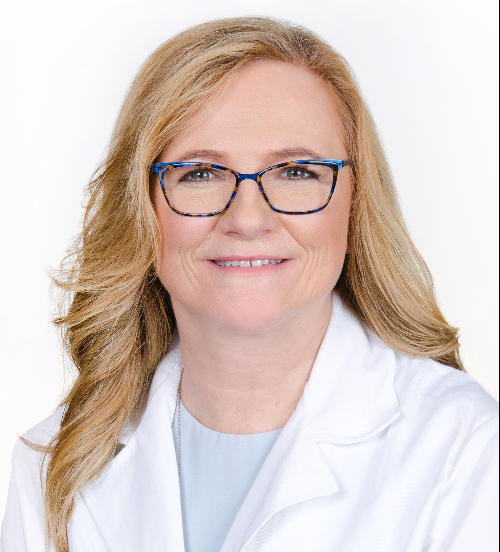
Jeanne-Marie Guise, MD, M.P.H.
Obstetrics and Gynecology

Jeanne-Marie Guise
Scientific Resource Center
Jeanne-Marie Guise, M.D., M.P.H., is Professor with Tenure in the Departments of Obstetrics & Gynecology, Emergency Medicine, Medical Informatics & Clinical Epidemiology at the Oregon Health & Science University and the OHSU-PSU School of Public Health. Deeply dedicated to clinical care, education, and research, she has held institutional leadership positions in all three missions.
Broadly, Dr Guise’s research interests include evidence-based medicine, clinical informatics, patient safety, and learning health systems. She leads one of 11 nationally recognized Centers of Excellence and K12 Career Development Programs in Learning Health System Science together with Dr Lucy Savitz from Kaiser Permanente Northwest and a consortium of health systems, academic institutions, community organizations, policymakers, and citizens. She is Associate Director of the US Cochrane West and Director of the Scientific Resource Center for the US Agency for Healthcare Research & Quality (AHRQ)’s Evidence-based Practice Centers (EPC) program.
She is the founding director of the State Obstetric, Pediatric Research Collaboration (STORC) and the Children’s Safety Initiative (CSI), an interdisciplinary consortium of investigators dedicated to improving the health and safety of women and children. Her research includes development of one of the first electronic health records in maternity care with an accompanying investigation into the incremental value of data integration; developing and validating of the Clinical Teamwork Scale (CTS™), a tool that is used around the world to measure teamwork in health care; and accelerating the translation of evidence and emerging science into practice.
As a physician scientist and dedicated mentor, she leads the Dean’s Physician Scientist Program for the OHSU School of Medicine and serves as Principal Investigator of the NIH Building Interdisciplinary Research Careers in Women’s Health BIRCWH, AHRQ Patient Centered Comparative Effectiveness Research, and AHRQ-PCORI Learning Health Systems K12 programs.
Dr. Guise received her medical degree from the University of Washington and completed residency training in Obstetrics and Gynecology from the University of North Carolina at Chapel Hill. She attended the Robert Wood Johnson Core Curriculum and received a Master’s degree in Public Health (MPH) in Epidemiology from the University of North Carolina as a National Research Service Award Primary Care Research fellow and she is a graduate of the Executive Leadership in Academic Medicine (ELAM) program.
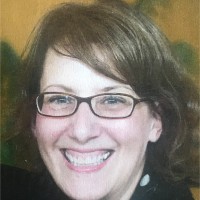
Margo Halm, PhD, RN, ACNS-BC

Margo Halm
Nursing
Associate Chief Nurse - Nursing Research & EBP
Passionate clinical researcher and health care leader. Extensive background in acute/critical care; evidence synthesis on clinical interventions; research design/measurement; use of models (research, QI) to develop evidence-based solutions that improve health outcomes; teaching research/evidence-based practice (EBP) methods to nurses and interprofessional teams; and developing systems/processes that support the Magnet Recognition Program.®

Seunggu Jude Han, MD
Seunggu Jude Han
Neurological Surgery

Melanie Hariff, PhD
Immunology

Melanie Hariff
Immunology
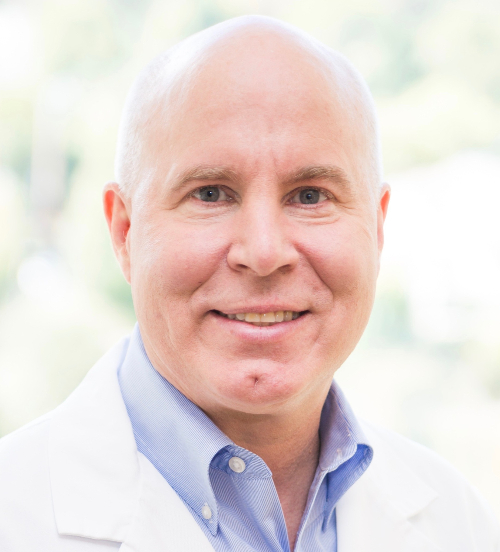
Michael Heinrich, MD
Medical Oncology

Michael Heinrich
Internal Medicine
Dr. Heinrich specializes in medical oncology with emphasis in the development of new cancer treatments. He earned his medical degree in 1984 from Johns Hopkins School of Medicine in Baltimore. He completed both his residency training and hematology and medical oncology fellowship at OHSU. In his free time, Dr. Heinrich enjoys watching his children’s sporting activities, waterskiing and running.
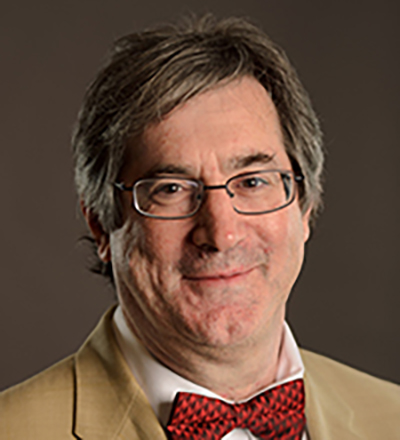
Mark Helfand, MD, MPH

Mark Helfand
HSR&D
Staff Physician
Mark Helfand, MD, MS, MPH, is Professor of Medicine and Professor of Medical Informatics and Clinical Epidemiology at the Oregon Health & Science University. He is board-certified in Internal Medicine and practices hospital medicine at the Portland VA Medical Center. He directs the VA Evidence-Based Synthesis Program Coordinating Center and the AHRQ Scientific Resource Center for the Effective Health Care program. He was Editor-in-chief of Medical Decision Making from 2005 to 2012. Dr. Helfand received an BA and BS from Stanford University, an MD and MPH from University of Illinois Medical School, and an MS in health services research from Stanford University.
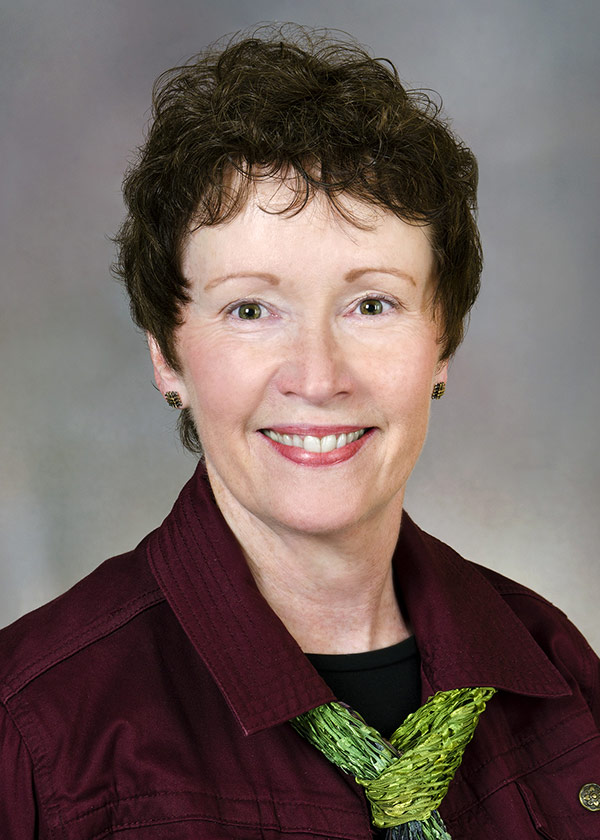
Cinda Hugos

Cinda Hugos
Research
Research Health Scientist
Randomized controlled trials of evidence based self-management treatment interventions
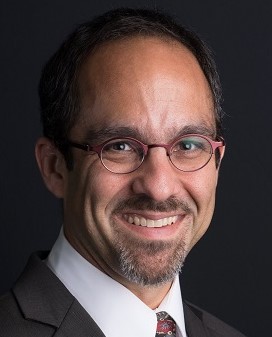
Michael P. Hutchens, MD, MA

Michael P. Hutchens
Surgery, Intensive Care, and Anesthesia (Operative Care Division)
Surgical Intensivist
Studying acute kidney injury in mice, Dr. Hutchens characterized new translational model of acute cardiorenal syndrome, cardiac arrest and cardiopulmonary resuscitation, and found a profound estrogen-mediated protective effect of female sex. Current projects in his lab include determining long-term outcomes of acute cardiorenal syndrome and determining cardiovascular signaling mechanisms which influence renal function during critical cardiovascular illness.

Aaron Janowsky, PhD
Aaron Janowsky
Pharmacology
Senior Research Career Scientist
My laboratory is involved in characterizing drug interactions with neurotransmitter transporters and receptors. A major goal is to identify potential therapeutic agents for the treatment of neuropsychiatric disorders including Parkinson’s disease, alcohol and drug abuse, depression, and schizophrenia. Methods we use include determining the effects of drugs on radioligand binding to, on neurotransmitter uptake and release by cells expressing cloned DNA for the respective human transporters, and on receptor activation and second messenger system function.
In addition, we are characterizing recently-discovered receptor/second messenger systems that may play a role in the development of symptoms of potential subtypes of schizophrenia, as well as the role of exogenous substances on disease development . Alteration of these systems may serve as medical, as opposed to behavioral, diagnostic criteria for the disorder(s).

Devan Kansagara, MD, MCR

Devan Kansagara
Internal Medicine
Devan Kansagara, MD, MCR is a Professor of Medicine, Division of General Internal Medicine and Geriatrics at Oregon Health and Science University. He practices internal medicine in the VA Portland Health Care System. One of his areas of interest is evidence based medicine, and the use of evidence to guide health policy. Dr Kansagara directs the Portland Evidence-based Synthesis Program, one of four sites nationally responsible for developing evidence syntheses to help guide VA policy. He is currently the Vice Chair of the American College of Physicians Clinical Guidelines Committee, and also works on health policy for the Oregon Health Authority. Dr. Kansagara’s other main area of interest is health systems redesign. In particular, he has done intervention and implementation work with hospital to home care transitions and the patient centered medical home. Dr. Kansagara completed his BA in English at Amherst College. He received an MD from the University of Connecticut School of Medicine, and completed residency training at Yale University. He received his Masters in Clinical Research from Oregon Health and Science University.
Dr. Kansagara serves as a primary mentor to Haley Holmer, MPH, PhD, one of CIVIC’s post-doctoral fellows.

Jane Xu Kelly, PhD
Chemistry

Jane Xu Kelly
Research
Principal Investigator
Malaria remains one of the deadliest diseases in the world today and accounts for over 200 million clinical cases worldwide each year along with roughly half a million deaths, mostly children under the age of five and pregnant women. With increasing drug resistance and the absence of a clinically available vaccine, there is an urgent need and continuous search for new chemotherapy to combat malaria. Our research projects focus on the drug discovery and development of novel therapeutic agents for prevention and treatment of malaria, thus supporting world-wide elimination of the disease. With local and worldwide collaborations, we study the chemical, molecular, and cellular basis of drug action and drug resistance using multidisciplinary techniques and methods.
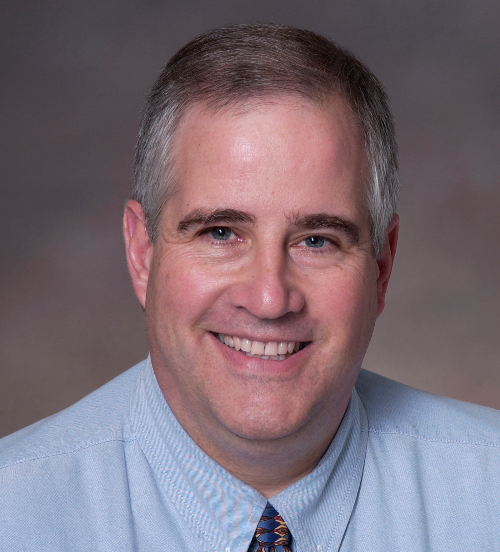
Robert Klein, MD
Endocrinology and Diabetes

Robert Klein
Endocrinology
Dr. Klein received his medical degree in 1980 from the University of California-San Francisco. He completed his residency at New York Hospital-Columbia University Medical Center, and underwent his fellowship in diabetes, endocrinology and metabolism at UCSF. Dr. Klein became board certified in internal medicine in 1983, and in endocrinology in 1987.
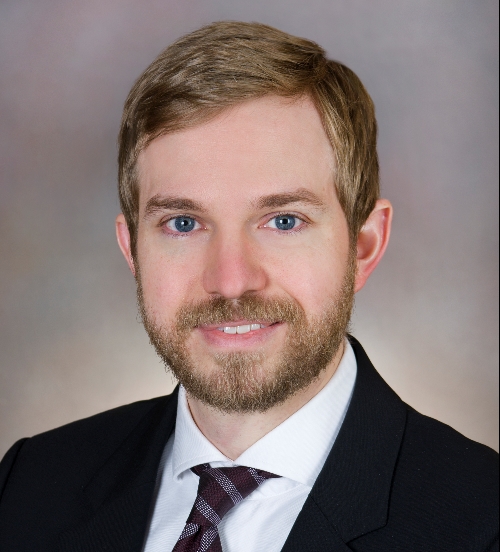
Ryan Kopp, MD
Urology

Ryan Kopp
Urology
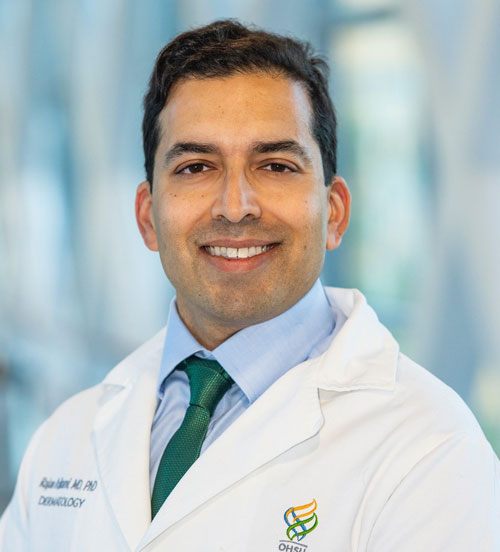
Rajan Kulkarni

Rajan Kulkarni
Position: Staff Physician, PVAMC and Associate Professor, Department of Dermatology, OHSU
Department/Center: Operative Care Division, PVAMC
Other Affiliations (such as OHSU): Department of Dermatology, OHSU
Education (to include residency & fellowships if applicable): BS, AB Stanford 2000; PhD Caltech 2006; MD David Geffen School of Medicine at UCLA 2009
Research/Education Project Focus: My focus is on melanoma and developing novel immunomodulatory treatments and in early detection of cancer.

Charles Layman, MD
Orthopedic Hand Surgery
Charles Layman
Orthopedic Hand Surgery

David Lewinsohn, MD, PhD
Pulmonary Disease

David Lewinsohn
Internal Medicine
After receiving his B.S. in biology from Haverford College, David Lewinsohn attended Stanford University School of Medicine. In 1989 he received his Ph.D. in cancer biology and received his M.D. the same year. Dr. Lewinsohn was a Fellow of Pulmonary and Critical Care Medicine at the University of Washington, Seattle, WA, from 1993-1996, and a senior fellow and acting instructor from 1996-1998. During 1996-1998 he was also an investigator at the Infectious Disease Research Institute in Seattle, WA.
David Lewinsohn’s original experience in immunology focused on defining the role of the homing receptor L-selectin on neutrophil adhesion. However, since his pulmonary fellowship, he has been interested in the immune system’s ability to detect and respond to the intracellular infection with Mtb. While it is clear that CD4+ T cells play a central role in the control of mycobacterial infection, CD8+ T cells are uniquely poised to recognize those cells harboring intracellular bacteria, such that these responses can be used as a surrogate for bacterial burden and/or infection. As a result, he has focused his work on understanding the mechanisms by which human CD8+ T cells can recognize cells harboring intracellular Mtb.He has focused on human, Mtb-specific T cells, and have defined HLA alleles used to present Mtb-derived antigen, have allowed for the definition of those antigens and epitopes that are presented, and have allowed for the analysis of the mechanisms by which Mtb-derived antigens are processed and presented.
His laboratory is run jointly with Dr. Deborah Lewinsohn, who is the Division Head of Pediatric Infectious Diseases, and whose interest has been in the immunology of pediatric TB, and the mechanisms underlying the susceptibility of young children to TB. As a result, the laboratory provides a rich environment spanning basic immune mechanisms underlying the cellular immunology and cellular biology of human infection with Mtb, to translation of these observations in TB endemic regions of the world.
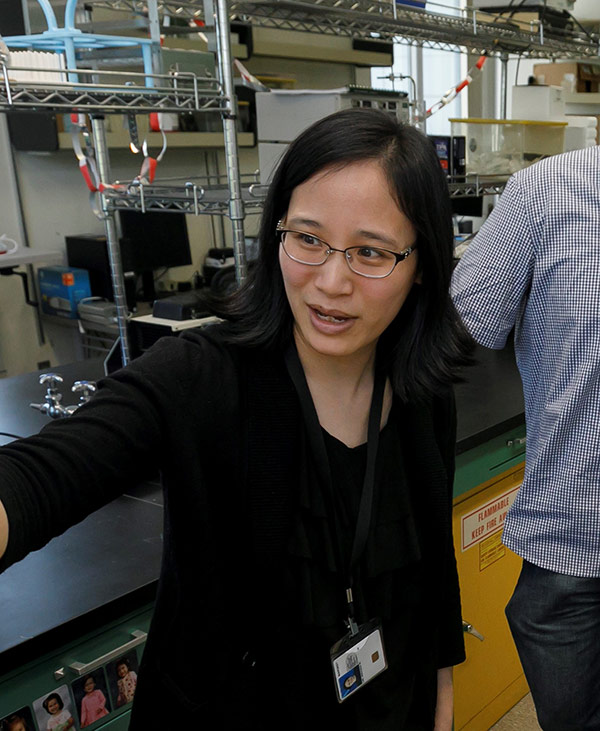
Miranda M. Lim, MD, PhD
Sleep Medicine

Miranda M. Lim
Neurology
Staff Neurologist and Research Investigator
My research program focuses on how sleep modulates neuropathological and behavioral outcomes across the lifespan, including in early development, in acquired TBI/PTSD, and in neurodegenerative diseases such as Parkinson’s and Alzheimer’s Disease. We examine both rodents and human subjects in our studies with an aim to bidirectionally translate scientific findings from bench to bedside. My laboratory has expertise in long-term sleep EEG/EMG recordings, quantitative EEG methodology, rodent behavior testing, animal models of chronic stress and disease, as well as observational, experimental, and interventional human subjects research.
To join a study: https://sharp.pvarf.com/join-a-study/
More about Dr. Lim’s research: https://blogs.va.gov/VAntage/84912/studying-sleep-problems-affect-veterans/

Jennifer M. Loftis, PhD

Jennifer M. Loftis
Research & Development Service
Research Scientist
As a VA career development award recipient, Dr. Loftis identified a novel role for cytokines in the etiology of depressive symptoms in adults with chronic hepatitis C viral infection. This finding has guided the subsequent testing of hypotheses regarding how circulating inflammatory cytokines affect central nervous system functioning. Her translational research program investigates the biological mechanisms contributing to neuropsychiatric impairments in the context of substance use disorders and co-morbid viral infections, with a particular focus on pharmacotherapeutic treatment development. These studies have identified molecular targets (e.g., glutamatergic receptors and inflammatory signaling pathways) and specific brain regions involved in drug-induced neuroadaptation and the adverse behavioral effects that contribute to addiction. Preclinical studies are being conducted to test the safety and efficacy of a new immunotherapy to treat methamphetamine use disorder. To support these research efforts, Dr. Loftis has been awarded grants from the Department of Veterans Affairs, the National Institutes of Health, and local foundations. She has authored over 85 peer-reviewed publications in the fields of psychiatry, neuroscience, and immunology. Before she came to the VA Portland Health Care System, this type of translational research in the field of psychoneuroimmunology was not being conducted.
In addition to her research program, Dr. Loftis has a long-standing interest in mentorship, teaching, and the development of new scientists. She has served as a mentor for the National Science Foundation’s STEM (Science, Technology, Engineering and Math) program and is currently a mentor in the VA Mentorship program, OHSU’s Partnership for Scientific Inquiry, and Saturday Academy’s Apprenticeships in Science & Engineering program. Her goal as a scientist is to maintain a productive research program in the field of psychoneuroimmunology, one that allows for the pursuit of research, teaching, and community service and one that contributes to our understanding of the pathological mechanisms associated with neuropsychiatric impairments and inflammation in order to improve mental health and quality of life for Veterans and others.
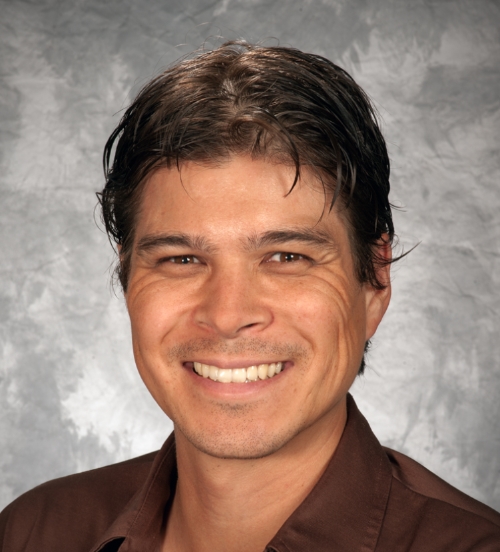
Travis Lovejoy, PhD, MPH

Travis Lovejoy
Psychology
Dr. Lovejoy’s translational research focuses on the design, rigorous testing, and implementation of clinical and health services interventions that improve health of persons living with chronic illnesses, as well as the communities to which they belong. His current research examines multifaceted treatment approaches for the management of chronic pain in patients with co-morbid substances use disorders, as well as telehelath approaches to improve mental health functioning and reduce HIV transmission risk behavior in persons living with HIV.

Shiuh-Wen Luoh, MD, PhD
Oncology

Shiuh-Wen Luoh
Internal Medicine
Dr. Luoh’s research focuses on developing new biomarkers and targets for novel therapy in breast cancer. His laboratory examines the functional involvement of several genes from the HER-2 region on the human chromosome 17 in breast cancer. His laboratory has recently shown that the GRB7 gene, which encodes a signal transduction molecule from the HER-2 region, is an independent adverse prognostic factor in breast cancer. His ongoing research aims to understand why some patients fail to respond to currently available HER-2 targeted therapy and to develop a new HER-2 testing strategy with improved accuracy. In addition, working with a well-annotated breast tumor repository with long-term clinical follow-up at the OHSU Knight Cancer Institute, Dr. Luoh’s most recent endeavors are directed at understanding the mechanism of late breast cancer relapse (more than five years after initial diagnosis and successful treatment). This is an important and as yet, a little understood area. A breakthrough in this area is vital to our achievement of zero recurrence for women diagnosed with breast cancer.

Melissa D. Murphy, MD
Infectious Disease
Melissa Murphy
Internal Medicine
Dr. Murphy’s areas of expertise are HIV and antiretroviral resistance.

Ruth Napier, PhD

Ruth Napier
BLR&D Research
Immunologist; Assistant Professor at OHSU in Dept. of Molecular Microbiology and Immunology
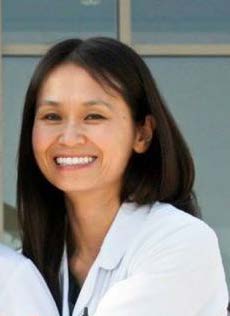
Khanh Nguyen, PhD
Vascular Surgery

Khanh Nguyen
R&D, OCD
Staff physician and scientist
Dr. Khanh Nguyen is a vascular surgeon and an assistant professor of surgery in the Division of Vascular Surgery at the OHSU School of Medicine. She is also a staff physician at the Portland VA Medical Center.
She is also a principal investigator leading multiple clinical trials and basic science research projects. She works with hematologists (blood experts) and biomedical engineers to study anticoagulants, venous thrombosis and other vascular disorders. She also has been a provider in OHSU’s Wound and Hyperbaric Medicine Center since it opened in December 2016.
Dr. Nguyen earned her M.D. degree from Tufts University School of Medicine in Boston, then completed her residency in general surgery at Loma Linda University in California. She completed a research fellowship in vascular biology at the University of California San Francisco and a fellowship in vascular surgery at OHSU.

Christopher Pfeiffer, MD, MHS
Infectious Disease

Christopher Pfeiffer
Hospital and Specialty Medicine (DHSM)
Chief, Infectious Diseases Section and Hospital Epidemiologist
His work is centered around preventing, detecting, and controlling the spread of multidrug-resistant organisms (MDROs) with a particular focus on carbapenem-resistant Enterobacteriaceae (CRE). He serves as Medical Director for the Drug-Resistant Organism Prevention and Coordinated Regional Epidemiology (DROP-CRE) Network with the Oregon Health Authority (OHA) and is involved in multicenter research collaborations. Most notable is his role as Principal Investigator of a CDC-funded project to implement a novel electronic system to track patients with MDROs such as CRE as they are transferred from VA facility-to-facility across the country. Dr. Pfeiffer is also a co-investigator for the VA HSR&D-funded CREATE projects, a VA CSP study of treatment for recurrent Clostridium Difficile, and a NIH-funded study of clinician decision making.
Dr. Pfeiffer enjoys running and hiking on trails near his home and throughout the Pacific Northwest.

Victor Quijano, DPM, PhD
Podiatry

Victor Quijano
Podiatry

Joseph Quinn, MD
Geriatric Neurology

Joseph Quinn
Neurology
Dr. Quinn specializes in general neurology and dementia. The professor of neurology received his medical degree from the University of Southern California, Los Angeles, in 1990. He completed his residency training at OHSU, and his fellowship in geriatric neurology at the Portland Veterans Affairs Medical Center. Dr. Quinn received his board certification in neurology in 1997.
Dr. Quinn’s research focuses on cognitive decline in Parkinson’s disease and other neurodegenerative diseases. His research interests include assessing biomarkers in Alzheimer’s disease, developing improved model systems for screening potential treatments for Alzheimer’s disease, and testing new compounds that target Alzheimer’s disease.
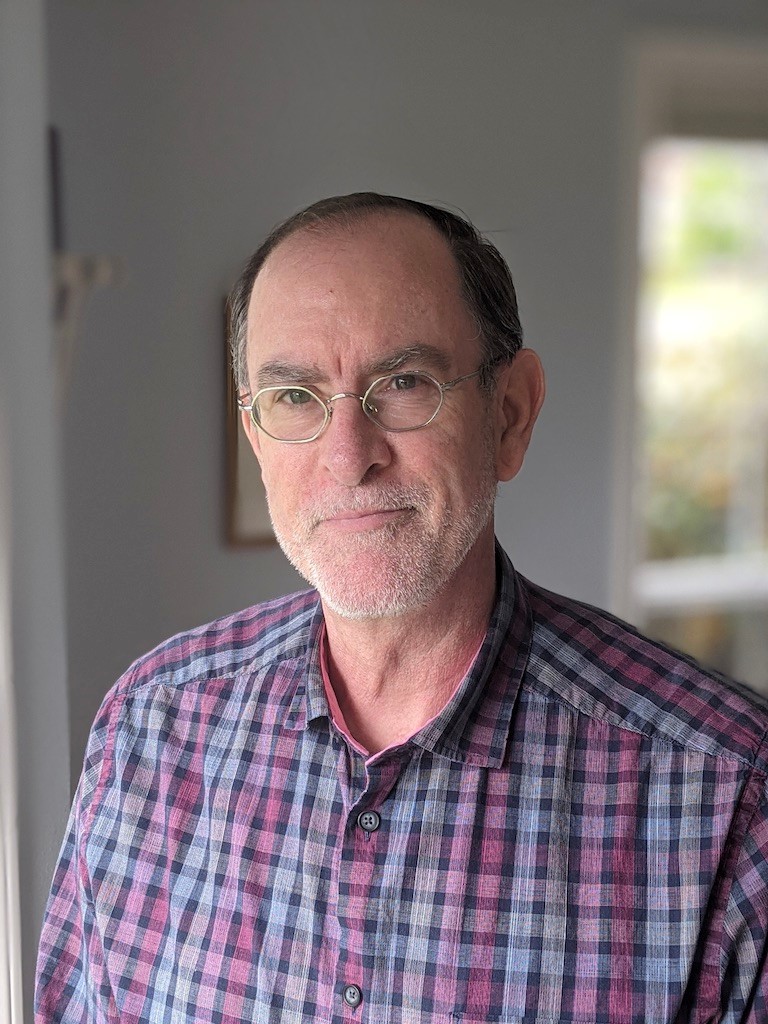
Michael Riscoe, Ph.D.
Medical Chemistry

Michael Riscoe
Experimental Chemotherapy Lab., Portland VAMC
Research Career Scientist
Dr. Riscoe’s lab focuses on the discovery, optimization and translational development of antiparasitic drugs, especially drugs for treatment and prevention of malaria. Using modern methods of drug design and chemical synthesis his laboratory has successfully created 5 novel antimalarial “chemotypes” with exemplary molecules in each category that are orally bioavailable and curative in mouse models of infection. These chemotypes include: 1) Dual functional acridones with blood stage activity that interact synergistically with many standard antimalarial agents, 2) 4-Aminoquinoline derivatives (“Pharmachins”), designed to replace chloroquine, that are rapidly active against multidrug resistant strains of Plasmodium falciparum parasites, 3) Quinolones (i.e., ELQ-300 and ELQ-316) that block parasite mitochondrial respiration and act vs. the blood, liver, gametocyte, and vector stages of parasite development, 4) Prodrugs of ELQ-300 for improved oral delivery and for injectable sustained-release and long-term protection against malaria, and 5) Biguanides with enhanced synergy together with anti-respiratory drugs such as atovaquone and ELQ-300. Dr. Riscoe’s lab also investigates drug mechanism of action and drug resistance by use of methods that are traditional to the fields of biochemistry, chemical biology and molecular parasitology. His lab receives support from the Department of Veterans Affairs, NIH, the US DOD and the Medicines for Malaria Venture (MMV). He maintains active collaborations with OHSU researchers including Scott Landfear, Ph.D. and J. Stone Doggett, MD as well as researchers elsewhere in the United States (e.g., Chourkri Ben Mamoun, Yale Univ.) and around the world (e.g., Jeremy Burrows, MMV, Colin Sutherland, London School of Tropical Medicine and Hygiene and Susan Charman, Monash University).
Childhood: I grew up in the area surrounding Kansas City.
Hobbies: Hiking, camping, snowshoeing, reading historical books, and going to the beautiful Oregon coast.
My wife Terry and I have 3 children and one grandchild.
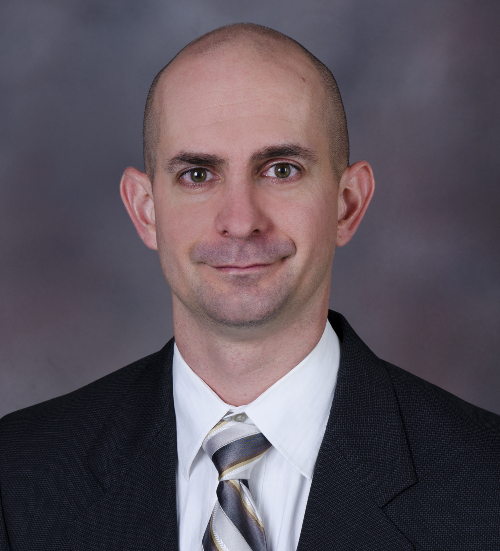
Mitch Sally, MD, F.A.C.S.
General Surgery

Mitch Sally
Surgery
Dr. Mitch Sally is an Associate Professor of Surgery with the Division of Trauma, Critical Care and Acute Care Surgery at OHSU. He also serves as Section Chief of Surgical Critical Care with the VA Portland Health Care System.
Dr. Sally is active in research with a focus on the critical care of a potential organ donor, which combines surgical critical care and transplantation disciplines, transfusion practices, and the treatment of SARS-COV-2. He is interested in both clinical outcomes from practices caring for the potential organ donor, and also the scientific background behind inflammation in these donors. For SARS-COV-2 treatment, my areas of research have focused on treatment, involving transfusion of convalescent plasma and drug development. Dr. Sally also has a strong interest in management of the airway in critical illness.

Gabrielle Saunders, PhD

Gabrielle Saunders
Audiology
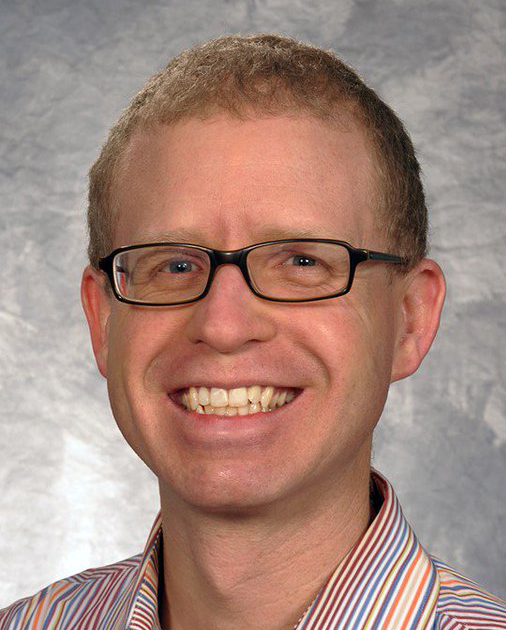
Christopher Slatore, MD, MS
Pulmonary Disease

Christopher Slatore
Center to Improve Veteran Involvement in Care (CIVIC), Health Services Research & Development
Investigator, Director of Research Education, Co-Director of the CIVIC HSR&D Advanced Fellowship
He is actively working in the prevention, detection, treatment, and healthcare delivery for patients with tobacco-related lung diseases, chiefly lung cancer and chronic obstructive pulmonary disease (COPD).
He enjoys biking uphill and hearing his wife and kids complain about the volume on his stereo.

Stephen M. Smith, MB, BS, PhD
Critical Care Medicine

Stephen M. Smith
Portland VA Medical Center
Director of Medical Critical Care
The major theme of our lab is rapid neuronal signaling in the mammalian brain and how this changes in disease states. Focusing mainly on the cerebral cortex, we study regulation of intrinsic excitability and synaptic transmission. A major target is the calcium sensing receptor (CaSR) which has been identified in neuronal somata and terminals.
Another interest has been heterogeneity of synaptic transmission at excitatory synapses and in particular the different roles of voltage-activated calcium channels (VACCs) at excitatory and inhibitory synapses.
Grew up in Nottingham, England.
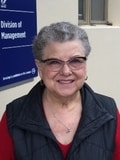
Ruth Ann Tsukuda, EdD, MPH

Ruth Ann Tsukuda
Psychology
Ruth Ann is Associate Director of the VA VISN 20 Northwest Mental Illness Research, Education and Clinical Center (MIRECC) and a faculty member in the OHSU Department of Psychiatry and the School of Public Health.
After several years as an R.N., Dr. Tsukuda has spent the majority of her career as an educator and administrator in academic or clinical organizations. Her primary interests are interprofessional education and interdisciplinary teams in complex healthcare settings. As an outgrowth of her clinical work, Dr. Tsukuda gained expertise in Clinical and Integrated Ethics and served for many years on as a member of the Consultation Ethics Team at the Portland VA Medical Center. From her earliest professional experience as a registered nurse throughout her various professional experiences, she has gained a respect for the importance of the foundation of values and ethical frameworks that guide our behaviors and inform decision-making in the complex environment of healthcare today.

Reid Thompson, MD,PhD
Therapeutic Radiology

Reid Thompson
Division of Hospital & Specialty Medicine
Staff Physician
Reid Thompson, M.D., Ph.D is an assistant professor of radiation medicine, assistant professor of biomedical engineering and a member of the Knight Cancer Institute’s Computational Biology Program. He received his medical and doctorate degrees from the Albert Einstein College of Medicine and trained at the University of Pennsylvania. He also holds degrees in genetics and biophysical chemistry. He joined the faculties of the Portland Veterans Affairs Medical Center and OHSU in 2016.
His research interests include immunotherapy, genomics, clinical data science, precision medicine, and artificial intelligence in medical imaging.
Dr. Thompson grew up in the state of New Jersey. He enjoys spending time with his family and he and his husband are the proud parents of an adorable daughter.

Belle Zaccari, PsyD
Belle Zaccari
Mental Health & Clinical Neurosciences and CIVIC
Staff Psychologist, Site PI for Project Stress Less-II
The objective of the current study was to improve outcomes of PTSD, mental health symptoms, and psychophysiological hyperresponsivity among women Veterans with PTSD from military sexual trauma (MST) in a multisite RCT (first line talk therapy versus trauma sensitive yoga).
Grew up in suburbs of Chicago, Bears fan, interests are being outside, hiking, macramé, cooking and canning, and weightlifting.

Ignatius Zarraga, MD
Cardiovascular Diseases
Ignatius Zarraga
Internal Medicine
Dr. Zarraga only sees patients at the Portland VA medical center. To arrange for an appointment, VA patients should contact their VA primary provider for a referral to cardiology clinic.

